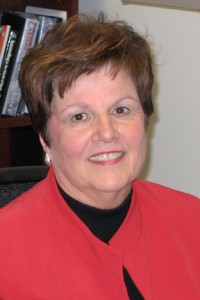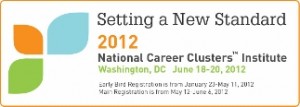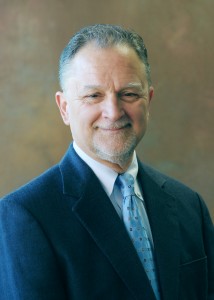This blog series provides readers with insight on the valuable content that is being shared at the Career Clusters â„¢ Institute. Guest bloggers are among teachers, faculty, researchers and other experts that will present at the national gathering in Washington, DC in June.
Nancy Null is a Curriculum Lead at Towson University in Towson, Maryland and Co-Director at Maryland CTE IT Program Affiliate.
Why aren’t Career Technical Education (CTE) instructors providing the professional development to academic disciplines around Common Core State Standards? Having taught in both academic (English) and CTE (Cisco Networking Academy) worlds, I can state unequivocally that academic teachers have much to learn from any outstanding CTE instructor.
Standards are nothing new to either academic or CTE worlds; however, CTE standards do more closely model that common set of skills now recognized as crucial to both college-and career-readiness. Moreover, exemplary real-world CTE instruction more closely aligns with the learning style of today’s youth than the paper-centric, two-dimensional world of traditional academia.
Don’t get me wrong: I loved teaching English. But I found myself continually searching outside the literary box for ways to connect my students to a real world of prose and poetry that spoke to them. Making that connection from “the other sideâ€â€”from CTE to reading, writing, speaking and listening—was much easier. My Cisco students were already comfortable and confident in their technical world, armed with knowledge just waiting to be communicated. They could connect to authentic contexts for the “deeper dive†that the Common Core State Standards require.
CTE teachers have long and deep experience shaping and guiding diverse populations of students toward common industry-standard goals; we know that real education takes place only when teachers have a reason to teach, and students have a reason to learn. We can lead the way in creating a real 21st century schoolhouse—a place where students hear the same message in all classes, meet the same expectations, and develop the same skillsets throughout their educational experience. That schoolhouse will be standards-driven, but there will be nothing “standard†about it!
Come hear more at our session: Techniques to Show Alignment to National Education Standards (Common Core) and How to Use Them, Tuesday, June 19: 2:30 p.m. – 3:15 p.m.
You’ll see a process one technology education program uses to map and document alignment to national education standards such as Common Core and STEM, and the tool I use to help education institutions articulate alignment and hear from one university how they put into action.
Ramona Schescke, Member Services Manager







